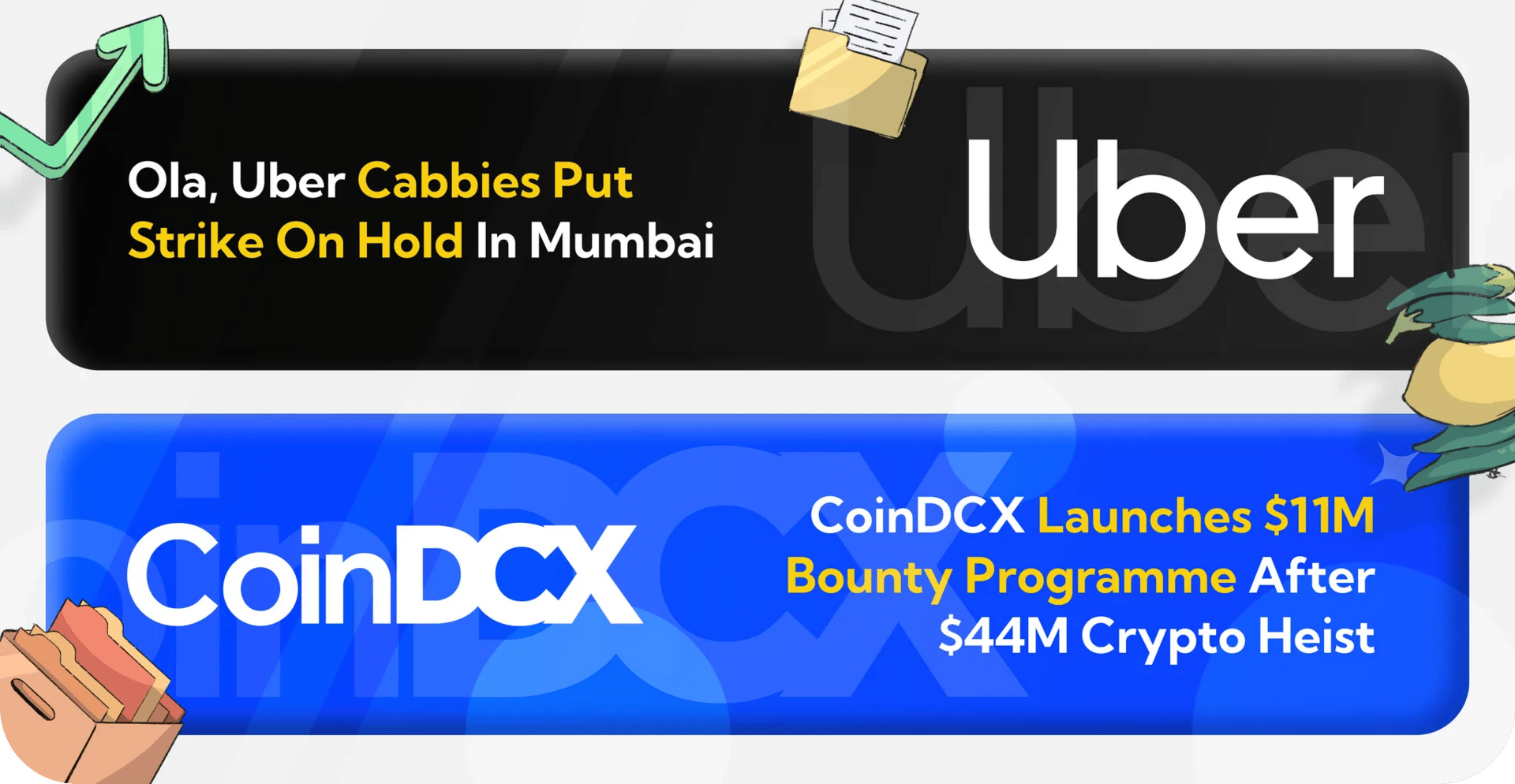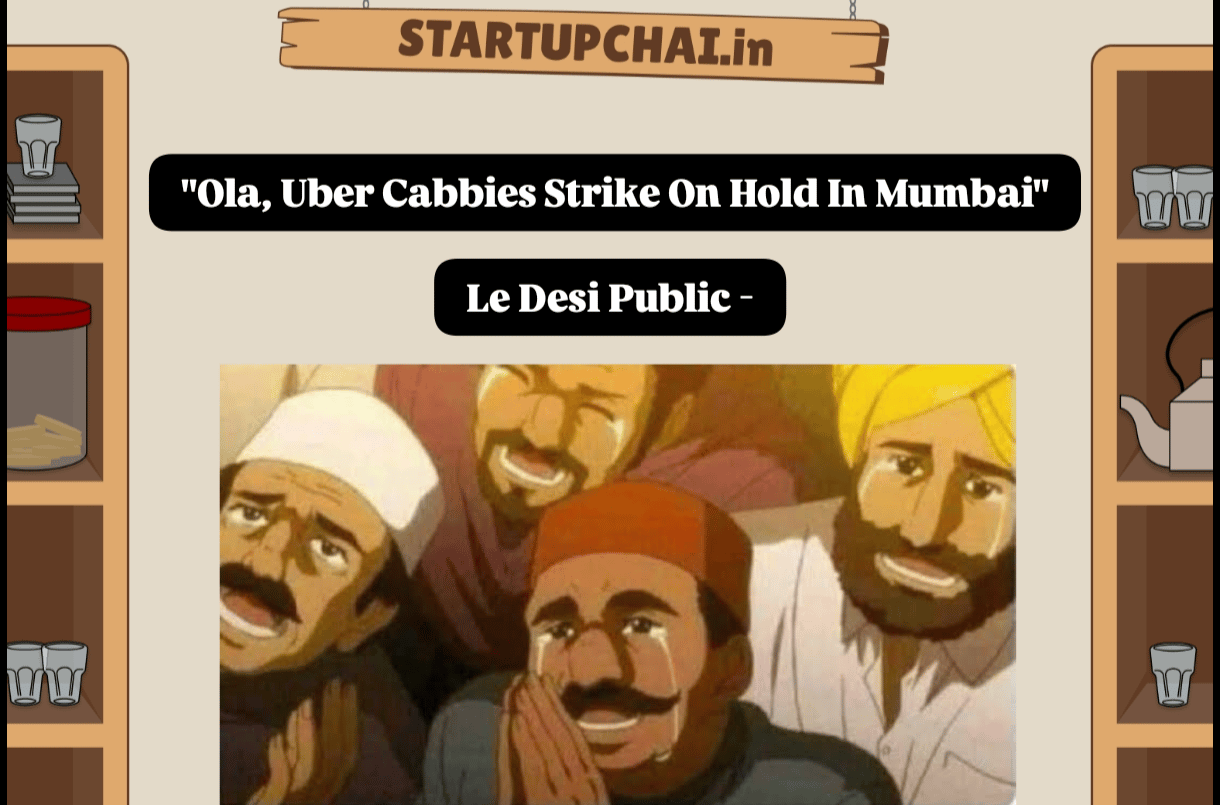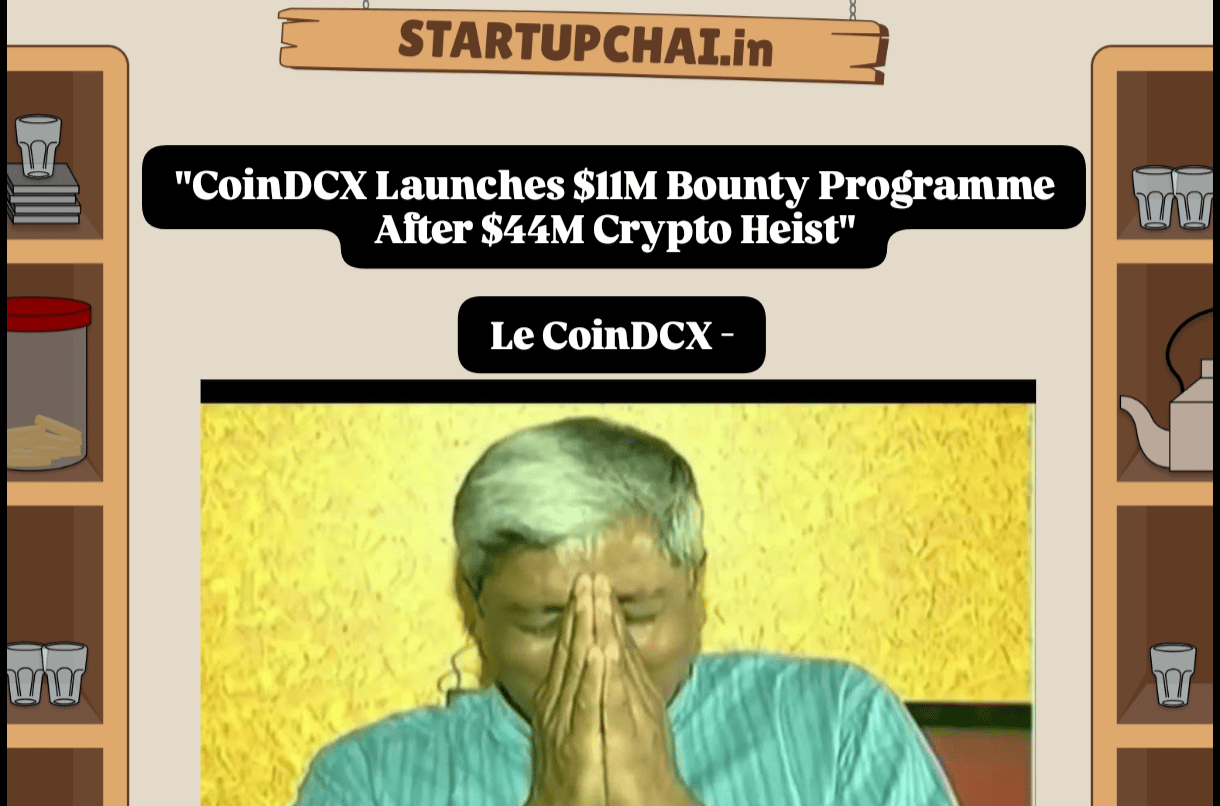- Startup Chai
- Posts
- India’s AI Gold Rush, Cab Strike On Hold, and CoinDCX Launches Bounty
India’s AI Gold Rush, Cab Strike On Hold, and CoinDCX Launches Bounty
Plus Eternal’s ‘Blinkit Foods’ and fundraising news about EduFund, Hudle, and Plenome Technologies

When Airtel rolled out Perplexity Pro to its 360 million subscribers for a year, normally a ₹17,000‑a‑year service, it wasn’t simply a promotional stunt but a multi‑crore infrastructure gamble. Serving an extra 100 million active users on a generative‑AI tier can burn through roughly $2 million (₹16 crore) in GPU/TPU compute and bandwidth each month, plus another ₹6-8 crore for data‑labeling, localization engineers, customer support and compliance teams - amounting to around ₹22–24 crore in monthly costs (₹264-288 crore annually). Google’s college‑student offer of its ₹19,500‑per‑year Gemini 2.5 Pro plan carries similar scale‑up expenses, offset only by its broader cloud‑services margins.
India’s AI market is projected to explode from $10.19 billion in 2025 to $50.57 billion by 2031 at a 30.4 percent CAGR. Yet while Indians account for 13.5 percent of ChatGPT’s 800 million monthly global users, they generate only $ 8-9 million in annual ChatGPT revenue - versus $330 million from the US (representing 8.9 percent of ChatGPT’s 800 million MAUs) - highlighting stark price sensitivity. ChatGPT Plus sees just a 10 percent trial‑to‑paid conversion in India compared to 25 percent in the US, with US ARPU at $ 18/month (₹1,500) versus $ 1.50-2.00 (₹125-₹165) in India.
Perplexity’s free trial drove 640 percent MAU growth in Q2 2024 - outpacing ChatGPT’s 587 percent download uptick - yet converting these users at India‑typical rates (10–12 percent) will determine ROI. If Perplexity sustains 100 million MAUs and converts 12 percent, that yields 12 million paid subscribers; at a discounted Indian rate of ₹3,000/year, that translates to ₹360 crore revenue - just enough to offset one year’s free‑trial compute and support costs. Google’s student base of roughly 30 million EDU users converting even 8 percent at a ₹5,000 annual list price would generate ₹1,200 crore, against a similar ₹250 crore annual infrastructure spend.
But direct subscriptions aren’t the only payoff. Both Perplexity and Google can bundle AI into adjacent services. Airtel could tie Perplexity access to higher‑ARPU broadband or fiber plans (₹500–₹1,000/month), while Google can upsell Gemini APIs into its paid Workspace tiers (starting at ₹150/user/month), boosting enterprise ARPU by 10-15 percent. Microtransaction models, charging ₹1-₹5 per advanced query, and ad‑supported free tiers could further diversify revenue, capturing the estimated 60 percent of users who remain on free plans.
The timing of these offers is no coincidence: it’s a direct gambit against ChatGPT. India’s 13.5 percent share of ChatGPT’s global user base generates only 2.5 percent of its revenues, making the market both high‑potential and under‑monetized. By handing out free Pro access, Airtel and Google aim to undercut ChatGPT’s freemium moat - only 10 percent paid conversion in India - and rewire user habits before OpenAI can adjust Plus pricing locally.
Locking in millions of trialists also accelerates local model refinement. Each interaction, whether a student’s research query or a telco‑bundle prompt, yields invaluable feedback on Indian languages, regional idioms and vernacular workflows that global models often mishandle. This user‑generated data can fuel Perplexity’s fine‑tuning or help Gemini sharpen its contextual understanding of local needs like cricket analysis, regional news summarization and vernacular translation.
What happens when the freebies end? Three scenarios crystallize: 1) a freemium pathway where 12-15 percent convert on ₹3,000 - ₹5,000 annual plans if premium features - multimodal AI, deep‑dive research tools, regional‑language support - prove indispensable; 2) an ad‑supported baseline where 60 percent stay on free tiers monetized via contextual ads and microtransactions while enterprises shoulder subscription revenue; and 3) a segmented paid market with 25-30 percent uptake among developers, power users and enterprises, fueled by specialized API usage and domain‑specific modules that command higher fees.
To win, Perplexity must embed AI deeply into Airtel’s ecosystem - bundling it with broadband, content and IoT services; offer tiered India‑specific pricing and pay‑per‑use credits; and forge partnerships with edtech players and e‑commerce platforms to broaden distribution. Google can also extend Gemini’s trial incentives to government agencies, SMBs and educational institutions, embed AI into Workspace and Cloud offerings, and experiment with micro‑subscription bundles (₹50-₹100/month) to capture price‑sensitive users.
India’s AI story will not be written by unrestricted “free” access alone. It will be defined by those who can balance multi‑crore infrastructure spends (₹250-300 crore per year) against ARPUs under ₹500, navigate evolving regulatory frameworks, build trust in a multilingual market and forge distribution moats that are hard for competitors to dislodge.
Let’s go through what else is happening in Indian startup world - Grab your simmering cup of StartupChai.in and unwind with our hand-brewed memes.

“Kasa Ahes?”: Ola, Uber Cabbies Put Strike On Hold In Mumbai
Mumbai’s ride-hailing chaos takes a breather as Ola and Uber drivers hit the pause button on their strike for now.
For the next three days, fares will follow government-fixed rates, not the unpredictable app prices. But don’t get too comfortable, if demands aren’t met, the cabbies might be back on the protest road.
Read more here

“Zindagi Kaisi Hai Paheli Haaye”: CoinDCX launches $11M bounty programme after $44M crypto heist
CoinDCX just turned its $44M crypto nightmare into a bounty hunt, launching India’s biggest recovery programme with rewards up to $11M.
If you’ve got clues to help track the hacker or recover the loot, they’re paying big - 25% of any funds you help bring back. It’s part heist movie, part blockchain whodunit, and the hunt is officially on.
Read more here


“Rishta Wahi, Soch Nayi”: Eternal To Set Up New Subsidiary ‘Blinkit Foods’
Eternal (aka the artist formerly known as Zomato) is cooking up something fresh with a new subsidiary - Blinkit Foods Limited.
While details are hush-hush, it’s likely tied to Blinkit’s 10-minute Bistro food delivery blitz. Think of it as a cloud kitchen on steroids, sprinting straight to your doorstep.
Read more here

EduFund has bagged $6 Mn in fresh funding from Cercano and MassMutual to turbocharge its AI-driven education planning engine. With a focus on Bharat’s rising education costs, the platform aims to deepen its reach in India’s tier-II and tier-III cities.
Read more hereSportstech startup Hudle has raised $2.5 Mn in Series A funding led by Sky Impact Capital to scale up operations and tech innovation. From football to fencing, Hudle helps enthusiasts book over 40 sports across venues nationwide.
Read more hereIIT Madras-incubated Plenome Technologies has secured Rs 6.5 Cr in seed funding to boost its blockchain-AI powered data security solutions. The startup aims to redefine how sensitive data is managed across sectors with cutting-edge tech.
Read more here
How did today's serving of StartupChai fare on your taste buds? |